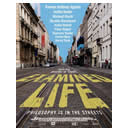The Yogis of Tibet
Tibet, the land of snows, is cradled in the cloud of fable. It was a place unknown to the world beyond its mountain walls for nearly a millennium. Exotic tales abounded about these unearthly people on the vast plateau embraced by the mountains. But it was not a land to be entered abruptly by outsiders. Inaccessible and remote, Tibet remained a mysterious figment in western imagination.
When the first expeditions of westerners entered the forbidden land in the late 19th century they brought back the first images the outside world had ever seen. They were images that provoked fantastic tales, even more it seemed westerners wanted to believe in the mythical Shangri-La, a temperate Asian land sheltered from the outside, governed by a philosophy of compassion and non-violence, free from hardship or strife.
If similar in philosophy, the physical reality of Tibet was far more complex. Life on Earth's highest plateau was one of harsh contrast, a place where natural riches were matched by unimaginable rigors. Its first inhabitants were nomads who slowly adapted to high altitude extremities. Even for these rugged people at 15,000 feet their eyes could literally dry up from the brutal intensity of the sun. A sudden hailstorm could destroy a season's work or scatter herds in seconds. Their early history was marked by fierce wars among tribes and outsiders. Life expectancy was brief. They were people with an acute sense of life's impermanence and suffering.
It is not hard to understand why the Tibetans, whose outward conditions were so severe and changeable, came to look inward for a sense of permanence and peace. The king who had finally united them as a people wished to unite them in faith as well. He invited a charismatic leader from India, Padmasambhava, to bring Buddhism to his land. The people came to embrace the Buddhist way of life as a continuous stream of death and reincarnation, a cycle in which human birth represents a precious opportunity to make the moral choices that will determine one's destiny in the next life.




Watched it again in 2020, still impressive. I am not too sure about the reincarnations but I am convinced that the yogis can control their mind I cannot even grasp.
They have developed high tech for the mind.
Ridiculous.
Great that its non-violent, but what a waste of your actual life. Never enjoy true beauty, because you are too obsessed with some spiritual BS and the 'after life'. Using so much of your mind to 'clear your mind'. Ridiculous and hypocritical.
Can't say I was a fan of Yogis wearing gold Rolex watches but besides that...how ironic is the situation in Tibet? a culture that for a 1000 years believed in being pacifist and compassionate towards all life in order to create good karma gets conquered, massacred and occupied by an aggressive foreign force. Just goes to show that reality is brutal. The hopeful ambitions of man mean little.
Total lie and propagandist. And don't even know anything about Buddhist teachings
So why do you comment on it then?
Good show! Evolution is a mess. I have such deep gratitude to those lamas of Tibet that planted the 'Victory Banner of Dharma' in the midst of the land of the barbarians, 'the United States of Fun and Fury.' Chogyam Trungpa Rinpoche (blessings on his soul) changed my life. The Yogis of Tibet have brought us a conscious field of love and awareness to catalyze the shift of higher consciousness that is now palpable. Viva the evolution/ revolution of higher consciousness!
39:20 Is that a nike symbol on his yellow shirt? I didn't know nike sponsored yogis. haha
Congrats to makers. And what is more compelling than heroic adaptation, compassion?
Buddha
soothes
Beyond
the mountains of desire
I saw Buddha dance on fire;
and while commuters in Bangkok
cook themselves in highway woks
(dreaming of holidays at home),
a cello weeps across a page
words and gods no longer span.
Nirvana?
Or a better fan?
Beautiful---well said---svaha!
industryOfBlame@ Nice reply.But Buddhism never asks or expects you to just merely believe my story.But rather offers up plausible techniques in which you can prove things to your self.Either the miracle of life sparks your interest or it dosen,t.
Any christian, muslim or jew could muster the same argument; "Try doing what we do and you'll find your own truth". In my view, if the miracle of life sparks a persons interest, they really ought to study biology and physiology, not buddhism.
You are lost my friend
Profoundly so, and I'm perfectly comfortable with that position.
i've always embraced the idea of energy not being lost in a closed circuit ie our universe,imo.
Nice perception - I see the hole in the ice - thank you -
There is a real problem with one hearing something - a buzz concept or phrase - thus locking one into a dead end maze of how things are when they very well may not be!
industryOfBlame@.You state that you find the belief in reincarnation objectionable?Thats because your probably young and healthy and think that you have many years to go.But as time passes and you find your self being harassed by the grim reaper.I bet you,ll reconsider You mean that you would rather die,never to see and feel the sun again.Instead of being given an other chance to right your wrongs and perfect your self into a state of eternal happiness.
I'm young, but no, I don't presume to know how many years I got left. I would absolutely love it if my conciousness could go on into some "next life", and if someone close to me died it would be a consolation to believe so. But there's no reason for me to believe that's actually what happens after you die, other than what I would wish for to be true. In the case of buddhism, if I'm supposed to believe the word of people who would take my money and dictate my life for my wish of not suffering for eternity to come true, I might as well be happy not existing at all after I'm dead. I'm fairly certain I wasn't around before I was born, and as I reflect back on that time I don't recall any feeling of inconvenience.
My father is a devoted buddhist of the Tibetan branch, and while I can understand his emotional attachment to these beliefs and practises, he has a tendency to include his personal interpretation of quantum physics into his arguments for the physical truth of his faith, at which point he loses me completely. I find the belief in reincarnation especially objectionable, because of the idea of perpetual suffering that goes along with it. Buddhist do have their own version of hell, and I have no doubt the compulsion to escape it leads to both self-destructive behavior as well as the typical theistic power struggles common with all religions, no matter how benevolent the buddhist message is in itself.
This doc was made in 2002, probably researched and filmed in 2000, makes me wonder how things have changed for them.
Very good doc.
I have watched this doc several times and i am going to watch it again now. A perfect lazy Sunday monastic afternoon.